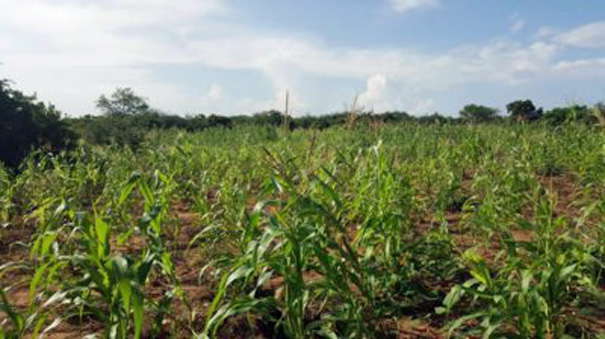Global plantation giant, the APC Group—a Geneva, Switzerland-based group of associated companies that includes Asia Plantation Capital—has now widened its global corporate presence to include Africa Plantation Capital in Kenya, with a major acquisition of land for the creation of high value bamboo plantations. This new expansion is to facilitate the group’s major investment into a forestry plantation sector that could be crucial in meeting the challenges currently faced by the global timber and biomass industries, as well as driving the quest for sustainable manufacturing solutions.
Bamboo has been identified as one of the most sustainable species in the world today, and presents a wide range of potentially lucrative commercial opportunities. The company has been developing commercial bamboo plantations in Thailand for several years, and has been managing them on behalf of private clients, along with its own inventory.
Established initially for the production of bamboo shoots for the food industry in Asia, the company has invested heavily in research and development, ultimately discovering multiple new (and in some cases ground-breaking) end uses for bamboo pulp and fiber.
Working with experts in the industry, alongside its own award-winning Scientific Advisory Board comprising some of Asia’s leading academics from universities and scientific bodies, Asia Plantation Capital now believes that it has developed an unrivalled husbandry program for commercial bamboo plantations that includes multiple, fully vertically integrated end products. This embraces the core values and the abiding ethos of Asia Plantation Capital and its associated companies, and brings the full “from soil to oil to you” story into a new sector.
Bamboo has been described as the “miracle crop,” and the APC Group intends to follow its award-winning success in other plantation sectors—such as agarwood—by developing the commercial prospects and maximizing the potential of the global bamboo industry. Bamboo is widely considered to be part of the solution to numerous environmental issues, and has, to date, been commercialized on a very small scale.
“Bamboo has been a subject that has fascinated us at APC for many years,” said Gary Crates, CEO, the APC Group. “Not only because of its never ending and growing list of end commercial uses, but also for what it brings to the table in terms of the environment. It’s the fastest growing plant on the planet—able to reach commercial viability as a food source in less than a year—and is a wonderful alternative to the type of timber and biomass that usually takes between 20 and 50 years to grow and reach maturity. Bamboo also releases more oxygen into the atmosphere than any other plant species, given the respective timescales.
“Its description as the ‘miracle plant’ is appropriate, in my opinion,” Crates continued. “We still needed to spend years researching and testing the species, to prove that it would work from a commercial aspect and on a commercial scale. The next, logical step was to develop large scale sustainable plantations that can produce an extraordinary range of end products.
 “We’ve done much the same with other species, and we believe that we have now developed an unbeatable business model for bamboo that fulfils all of the criteria that we look for when we invest heavily in a sector. The only thing slowing us down,” Crates concluded, “is the multitude of end uses to which bamboo can be put. Food, biomass, charcoal, engineered construction boards, bio char, activated carbon, paper, luxury fabrics, tissue paper, flooring, kitchen and home appliances, bicycles (photo left), even luggage (photo right below). These are just off the top of my head. The last three years spent evaluating the potential of bamboo and turning the remarkable plant into a commercial reality has been a fascinating and rewarding period for me.”
“We’ve done much the same with other species, and we believe that we have now developed an unbeatable business model for bamboo that fulfils all of the criteria that we look for when we invest heavily in a sector. The only thing slowing us down,” Crates concluded, “is the multitude of end uses to which bamboo can be put. Food, biomass, charcoal, engineered construction boards, bio char, activated carbon, paper, luxury fabrics, tissue paper, flooring, kitchen and home appliances, bicycles (photo left), even luggage (photo right below). These are just off the top of my head. The last three years spent evaluating the potential of bamboo and turning the remarkable plant into a commercial reality has been a fascinating and rewarding period for me.” One of the biggest challenges for the APC Group team in its quest to secure a viable, commercial future for bamboo, has been to establish the best and most secure regions in which to develop and operate large scale plantations. Accessibility to important markets has been key, while soil and climatic conditions are also crucial.
One of the biggest challenges for the APC Group team in its quest to secure a viable, commercial future for bamboo, has been to establish the best and most secure regions in which to develop and operate large scale plantations. Accessibility to important markets has been key, while soil and climatic conditions are also crucial.Kenya, with its near perfect climate, rich agricultural land, and established agricultural industry—not to mention the excellent logistical infrastructure—was the perfect choice. The group has now established Africa Plantation Capital, and secured the purchase of land for its initial development in Kenya.
“We have been involved in various agricultural projects in Africa for a number of years,” said Crates, “but this is the first time we have actually invested in our own land. We are very excited to be developing the sustainable bamboo industry in Africa, starting our operations in Kenya under Africa Plantation Capital, and we see huge potential for the country and the continent. This venture (photo below) represents an initial investment into Kenya of around $30 million in the first 1,000 acres and its associated infrastructure.”

As a further part of the group’s commitment to securing innovative, sustainable, commercial solutions and new technologies, the group is supporting Boo‐Tex Industries, which, as well as developing a new range of luxury bamboo fabrics for the fashion and sportswear industries, is also supporting a project to build the world’s first fully sustainable supercar. Codenamed the “ECOO7,” the car (photo below) is being built using next generation technologies including a monocoque chassis made from engineered bamboo fiber, with the entire car body and framework made from the same bamboo fiber composites. Bamboo has a tensile strength that is three times stronger than steel, doesn’t rust, and is lighter than carbon fiber. This makes it an ideal solution for the global car industry, and it would be no surprise to see James Bond driving a car of this ilk in the next instalment of the universally recognized film franchise.

With a global plantation footprint now covering Asia, Africa, and the U.S., the APC Group and its local companies (Asia Plantation Capital, Africa Plantation Capital and America Plantation Capital) are now firmly established as major players in the industry. The group is now set to dominate the bamboo industry as a whole, and take its place as a pre¬eminent, vertically integrated grower, manufacturer, and distributor of bamboo end products.
Although operating privately since 2002, Plantation Capital was officially established in 2008 in the U.K., before incorporation in Sri Lanka in 2009 as Asia Plantation Capital, followed by Thailand, Hong Kong, Singapore, and Malaysia. The group expanded in 2015 to include Africa Plantation Capital in Kenya, and America Plantation Capital in Florida, USA.
The Asia Plantation Capital Group now has a corporate presence, plantations, and agricultural projects on four continents, with operations at various stages in Thailand, Malaysia, China, Laos, India, Cambodia, Sri Lanka, Myanmar, Vietnam, North America, Africa, and Europe, making it one of the largest vertically integrated growers, manufacturers, and distributors of many end products such as Oud oil, agarwood, and bamboo. The group’s philosophy is exemplified by the recent opening of the largest agarwood processing factory in Southeast Asia, and its newly acquired plantations in Africa and the U.S.
Boo-Tex Industries is part of the Boo-Tex Group of companies, established in the U.K. to develop, research, and commercialize the full potential of bamboo as a suitable solution across a wide range of industries. With an ethos of partnering with universities, corporates, and governments to further develop bamboo and other sustainable materials and technologies, the Boo-Tex Group is perfectly placed to make full use of one of the most eco-friendly and sustainable resources in the world today.
Source :Over The Wire




